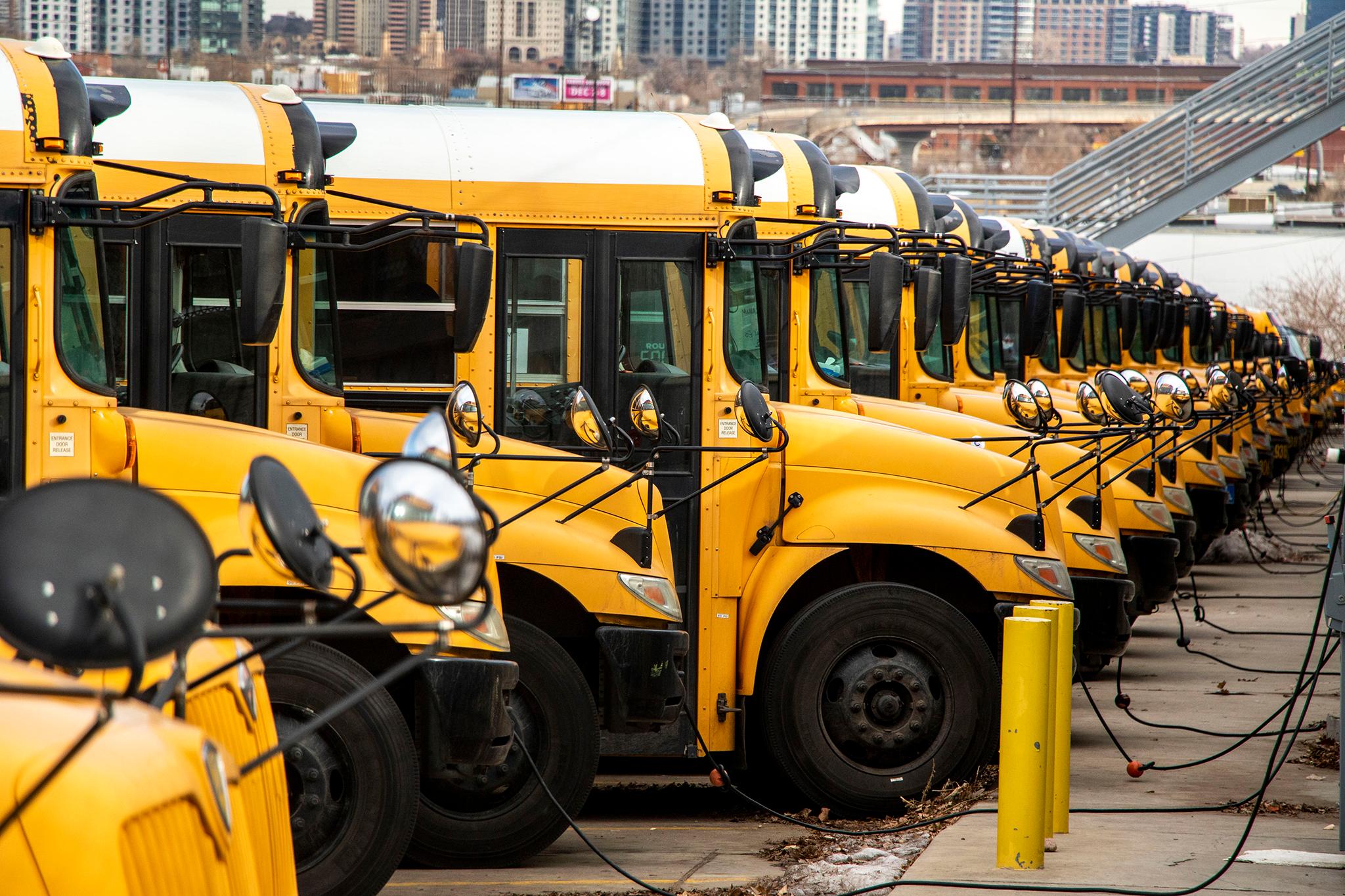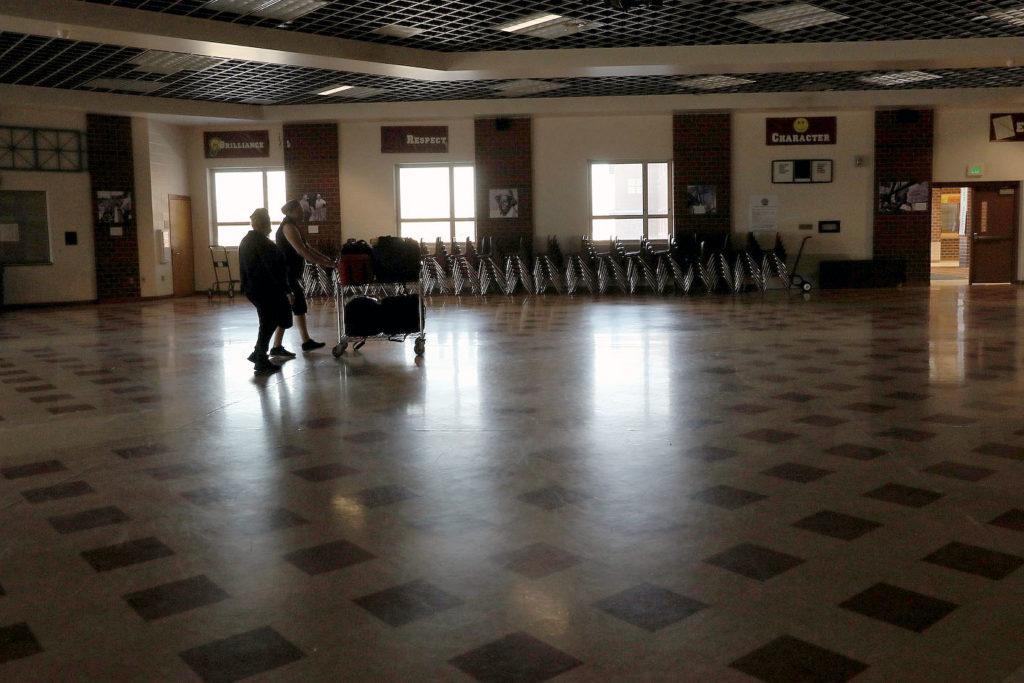
School bus drivers, mechanics, secretaries, groundskeepers, cafeteria workers, classroom aides and other hourly workers at Denver Public Schools want at least the same pay raises teachers successfully negotiated with the district last month. But contract negotiations among the hourly workers and the district broke down after several weeks and are scheduled to resume with a mediator on Monday.
Eight unions representing 3,100 education support professionals have joined together as a bloc to negotiate with the district. Their latest demand was a 3.5 percent raise with an additional .6 percent to come if Denver voters approve a mill levy increase in the fall. DPS says the most recent proposal would cost $5.3 million a year.
The district’s offer is a two percent raise next year and an additional .6 percent if voters approve a tax increase. The two proposals are about $2 million apart.
On Friday, the unions said they want at least the same three percent raise teachers received.
Michelle Bell, a single mother with two children, is a cafeteria manager at CMS Community School.
“I have been living paycheck to paycheck to survive,” she said. “I can’t live off of this amount of money.”
Tonya Cordova has been a special education classroom aide in DPS for 20 years and makes roughly $33,000. She says she can barely make ends meet and has had to take a second job for the past six years.
“It makes me so angry to see the DPS bargaining team continue to offer us poverty wages and treat us like we are disposable. When will they step up and do the right thing?”
“We literally have employees that work full time and still qualify for Medicaid and Medicare from low wages,” said John Adams, an education support professional bargaining spokesperson. “When you are willing to give those at the bottom of the scale less than the person they work beside you are sending a bad message for those who are disenfranchised.”
Colorado’s largest school district, reeling from a five percent drop in state funding, recently cut $65 million from its budget. In separate negotiations, teachers protected more of their salary increases than the district had originally planned for when the contract was reopened last month.
District officials say that the budget is based on drawing down reserves by $28 million.
“In the face of decreasing revenues, any increases are likely to mean a greater drawdown of reserves,” district spokesperson Winna MacLaren said.
The district says it also must take into consideration the implications of a higher wage increase on other employees at similar wage levels, regardless of whether they are represented by a union or not.
“We deeply value the work of our ESPs [education support professionals] and their roles in ensuring our schools run smoothly and that our students are cared for,” MacLaren said.
She cited several past efforts aimed at making sure workers earn a livable wage, including committing to a $15 minimum wage before the city passed its own ordinance; investing $3.6 million into compensation for low wage workers last year; keeping everyone employed and paid during the pandemic when people couldn’t work, at a cost of $29 million; using reserves to support increased compensation when many districts are freezing compensation; and increasing contributions to benefits by more than $2 million in the past several years.
The total annual budget for the school district is about $1.1 billion.

Lynne Valencia-Hernandez, a teacher and member of the Denver Classroom Teachers Association’s bargaining team, sat on the district’s budget advisory committee and said the committee determined that budget cuts should not negatively impact district workers who earn low wages.
She said when teachers agreed to a three percent raise “we did not intend for the ESPs to be left further behind – we assumed the district would do the right thing and give the ESPs at least the same percentage raise.”
The district said the budget advisory committee stressed the importance of weighting salary increases to workers at the lower end of the wage scale, offering increases between .5 and 1.9 percent. But it said the support staff unions have demanded flat increases to all employees, which is more costly.
DPS Board President Carrie Olson said in a statement shared with the unions that the district needs to find a way to ensure a livable wage for education support professionals.
“We know the majority of our ESPs are employees of color and we need to demonstrate our value of equity by improving how we pay our low-wage workers while maintaining our fiscal responsibility.”
Bargaining talks are set to resume with a federal mediator at 10 a.m. Monday and are public at this link.








